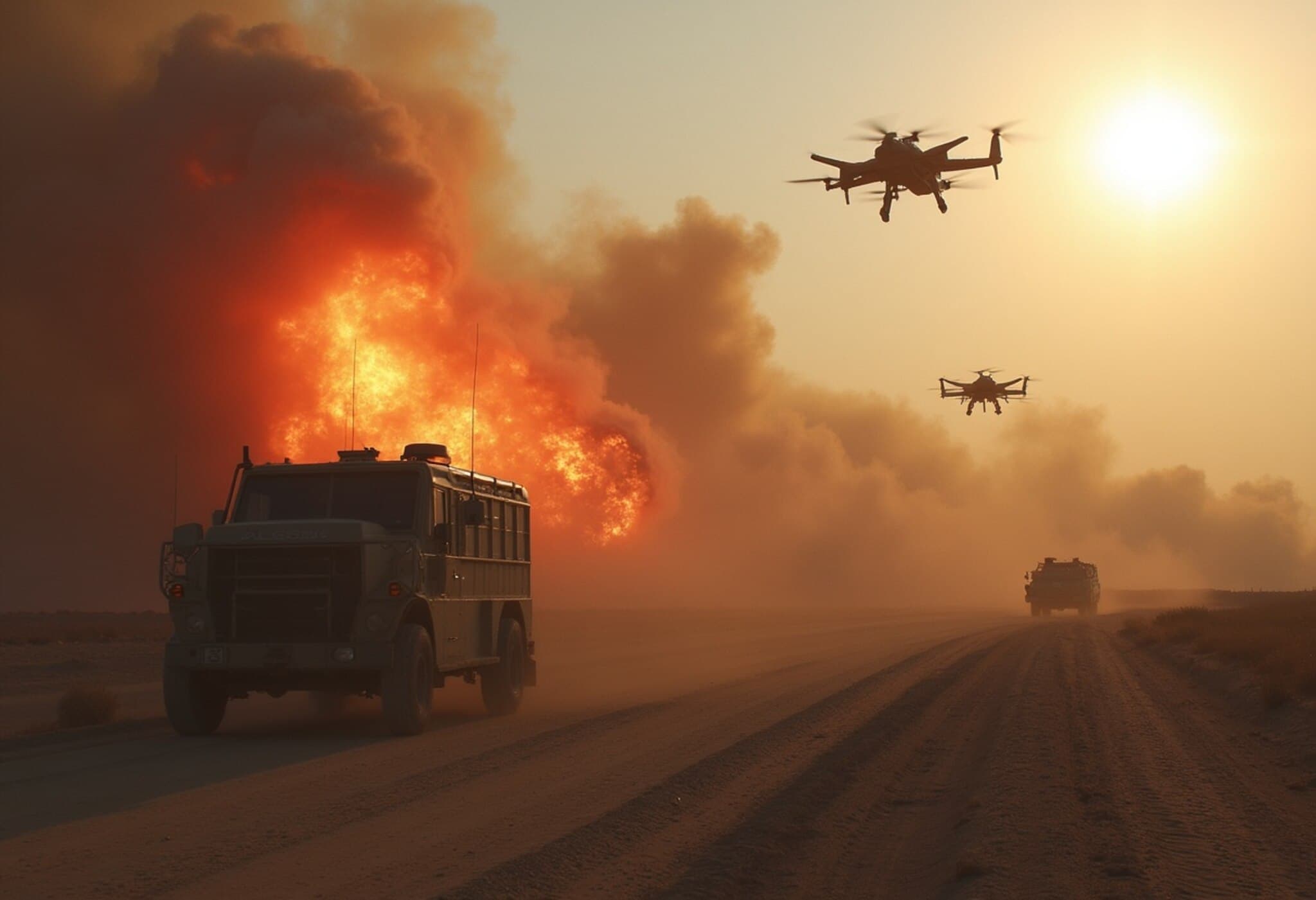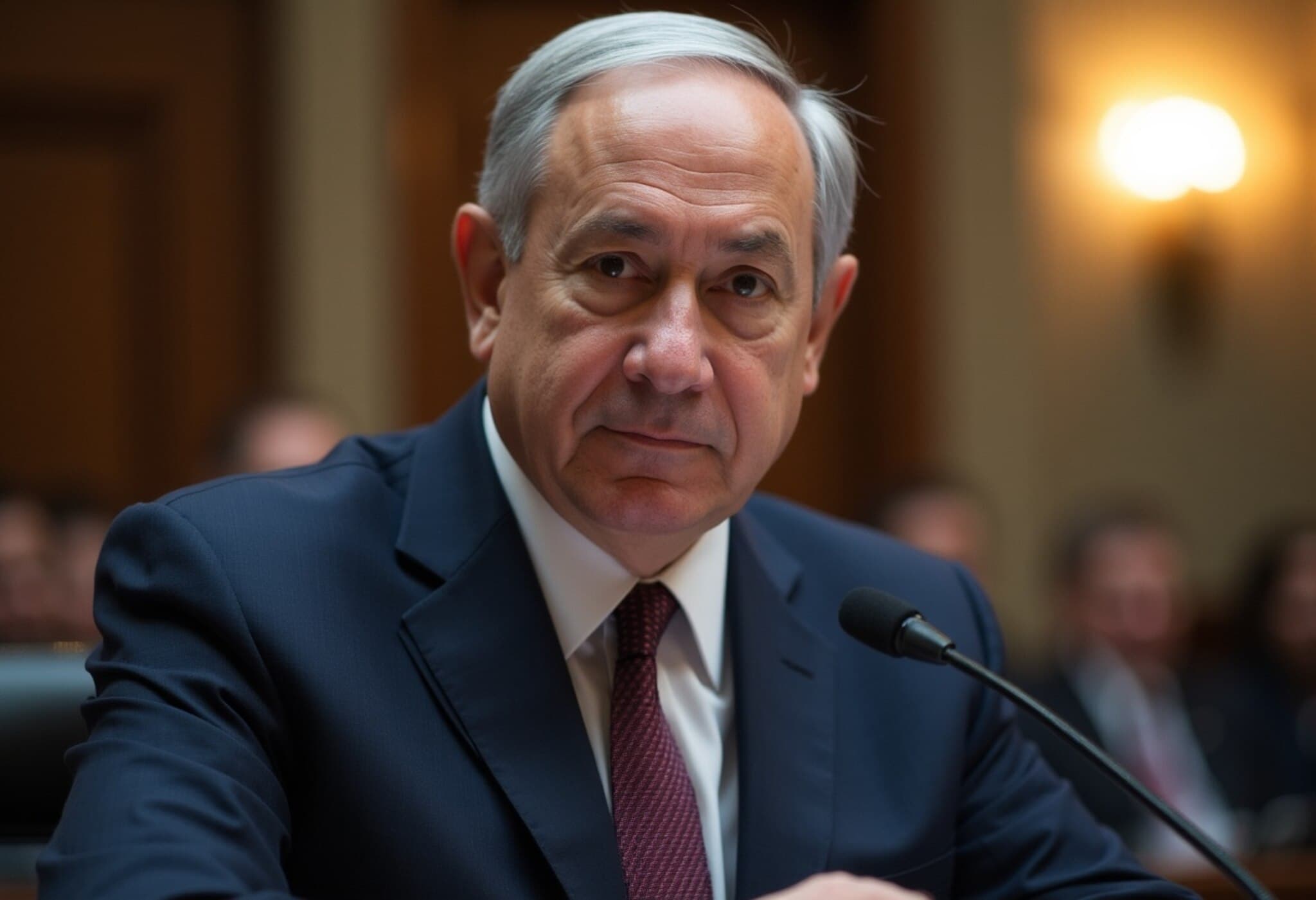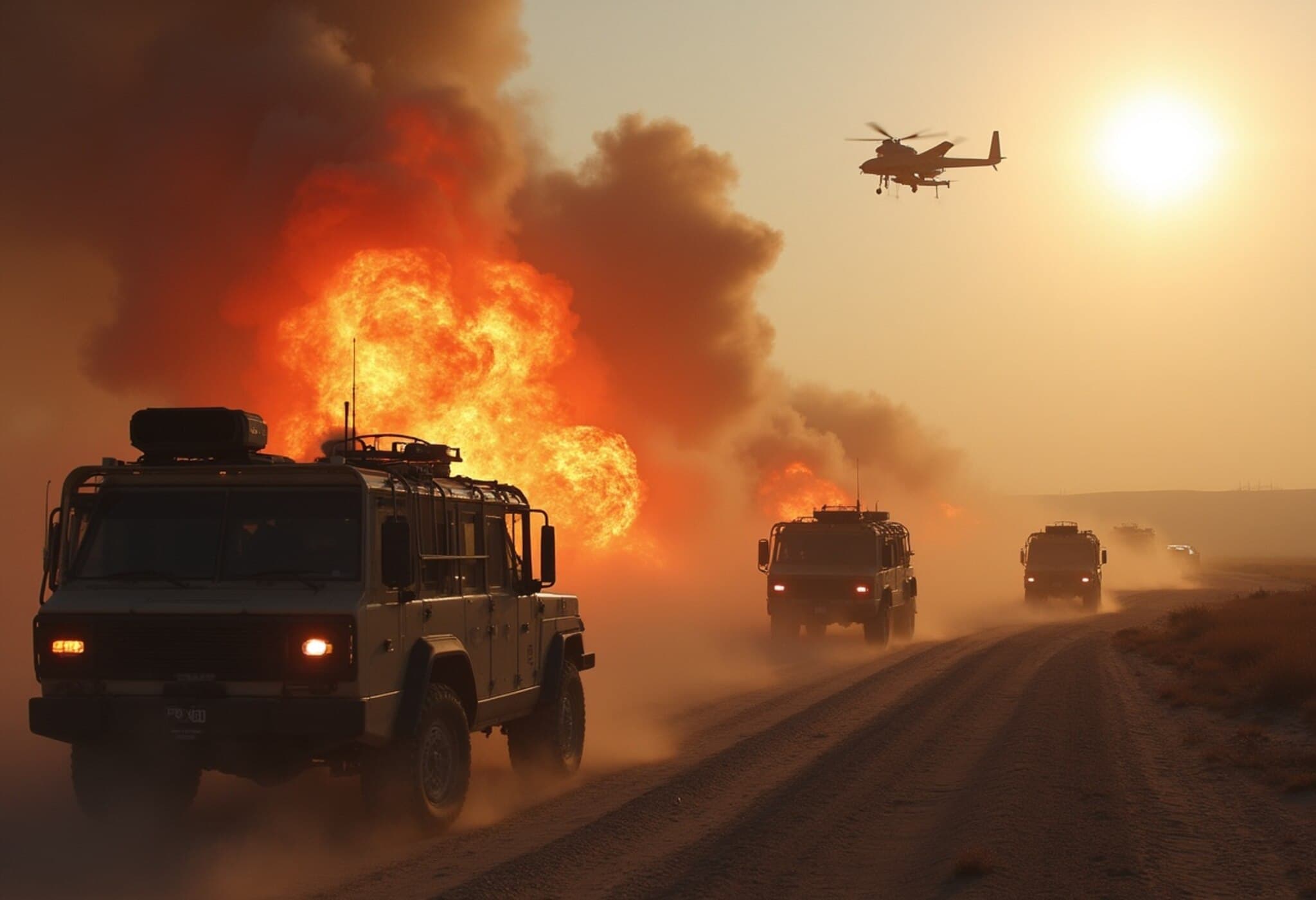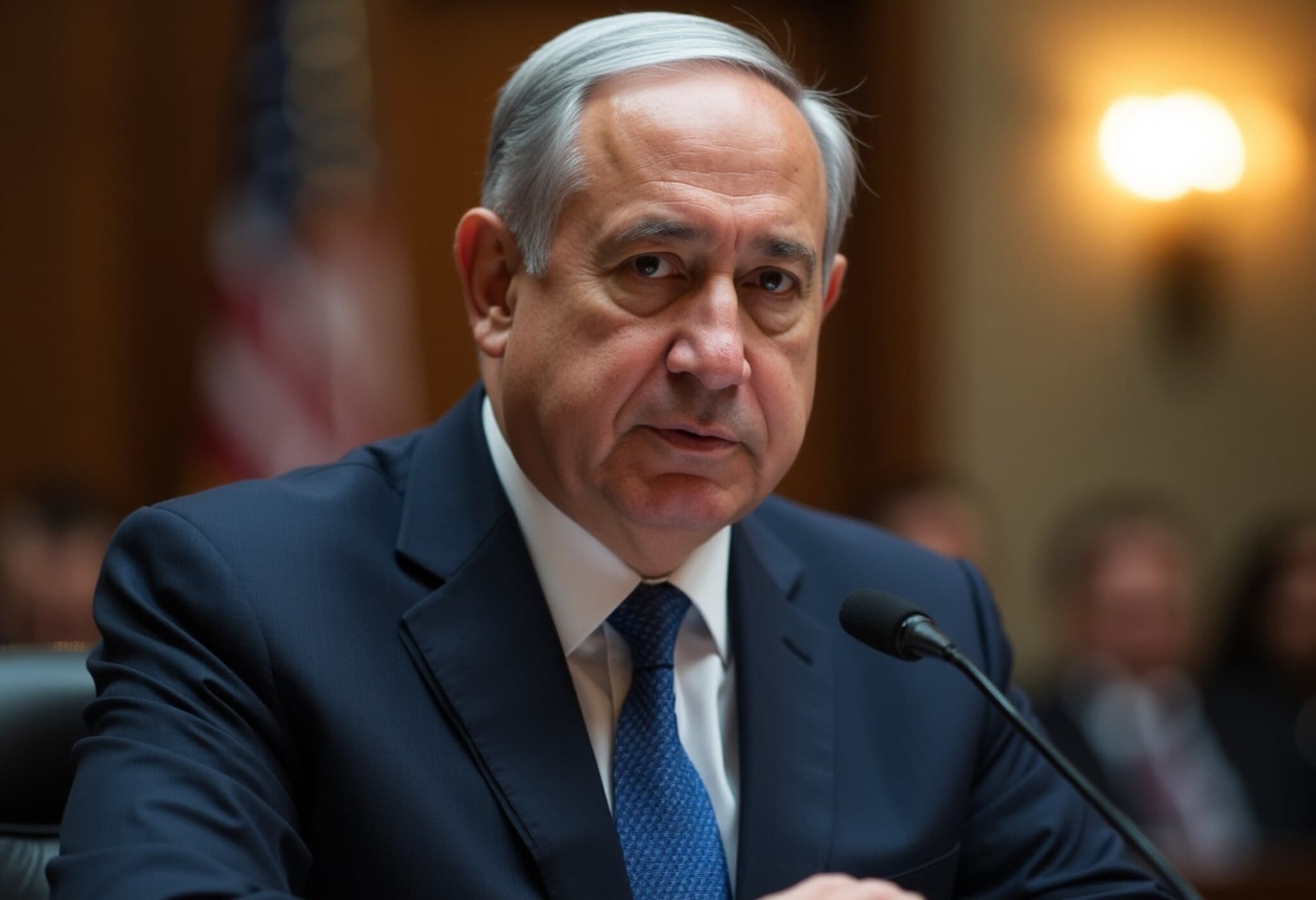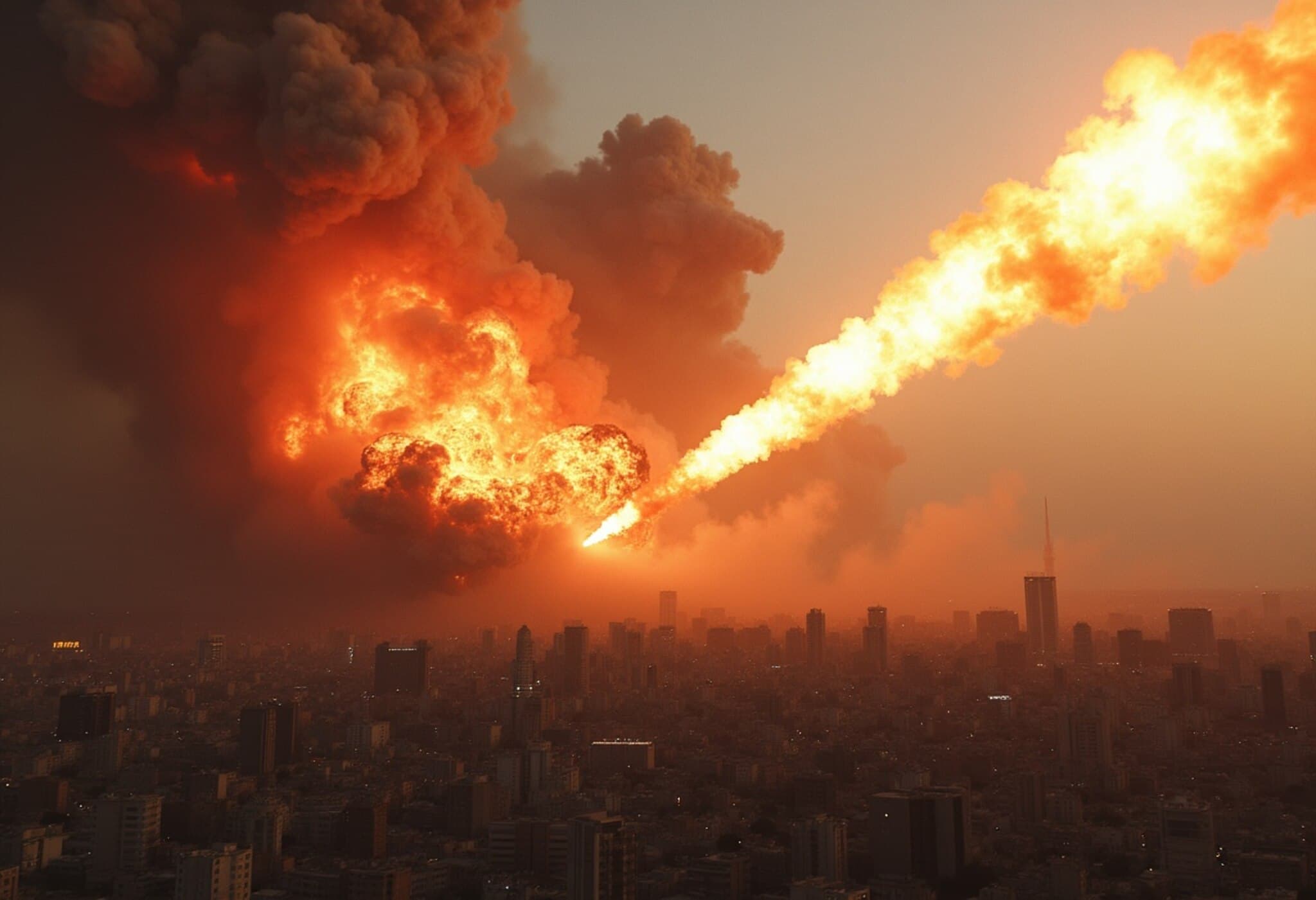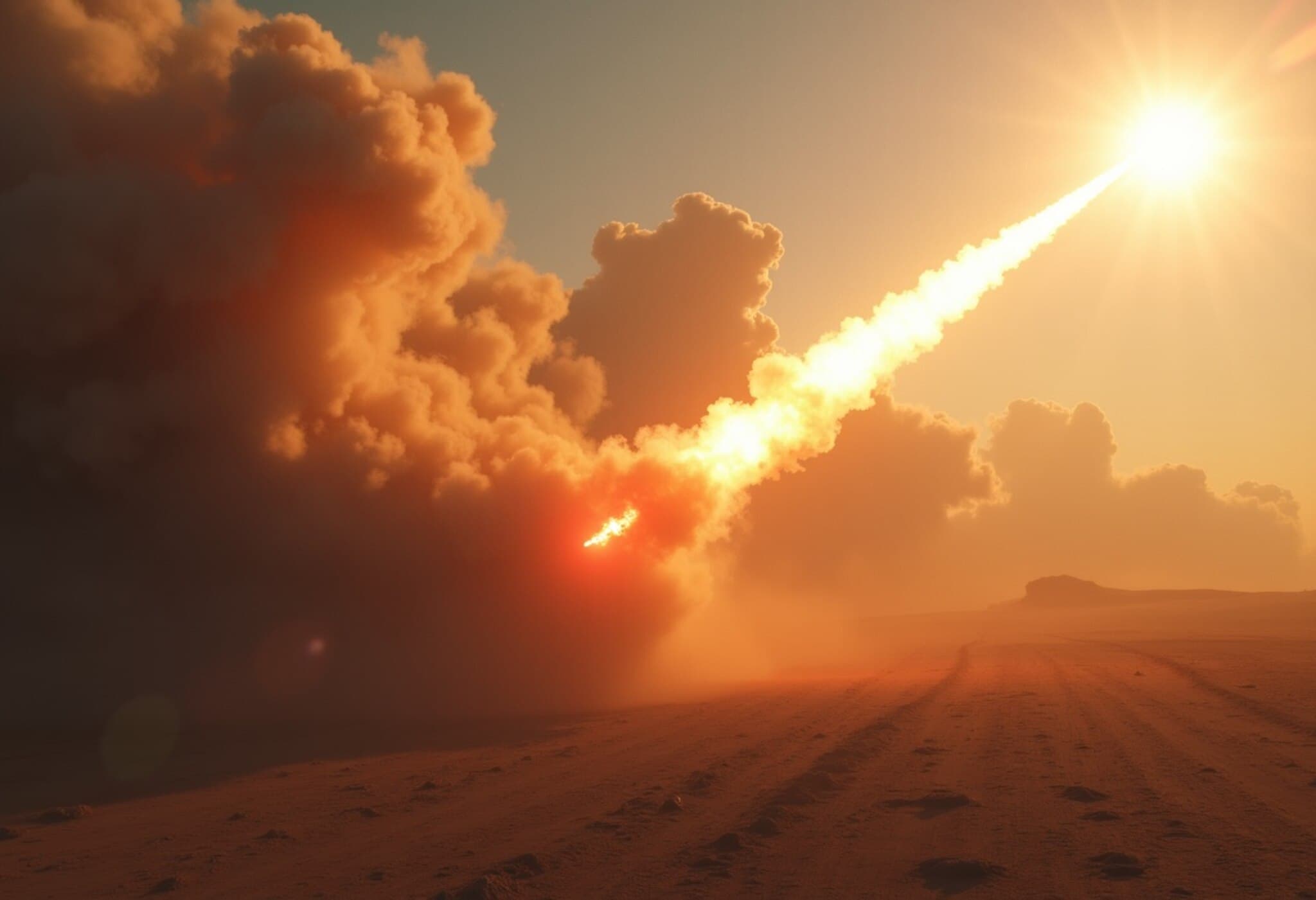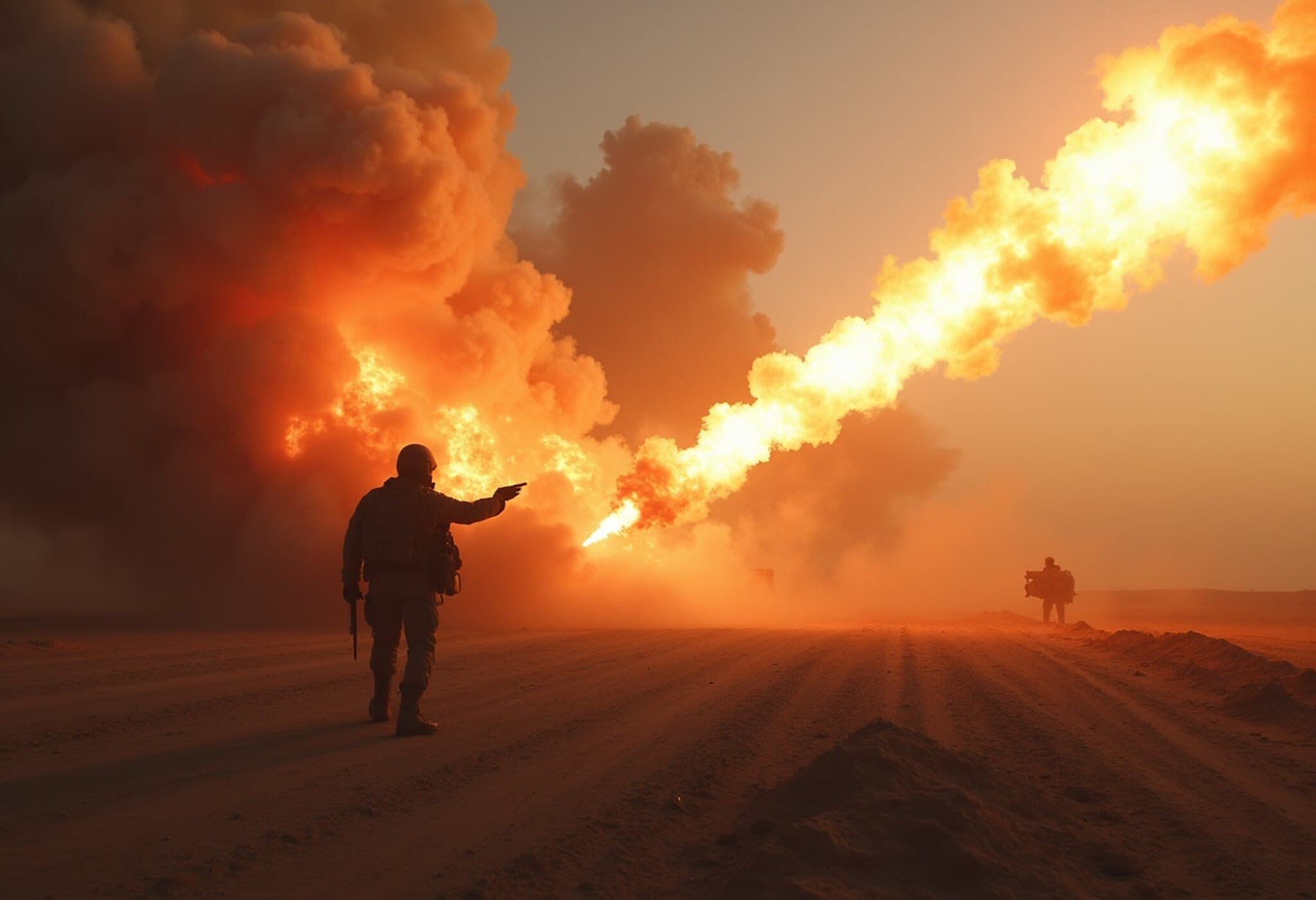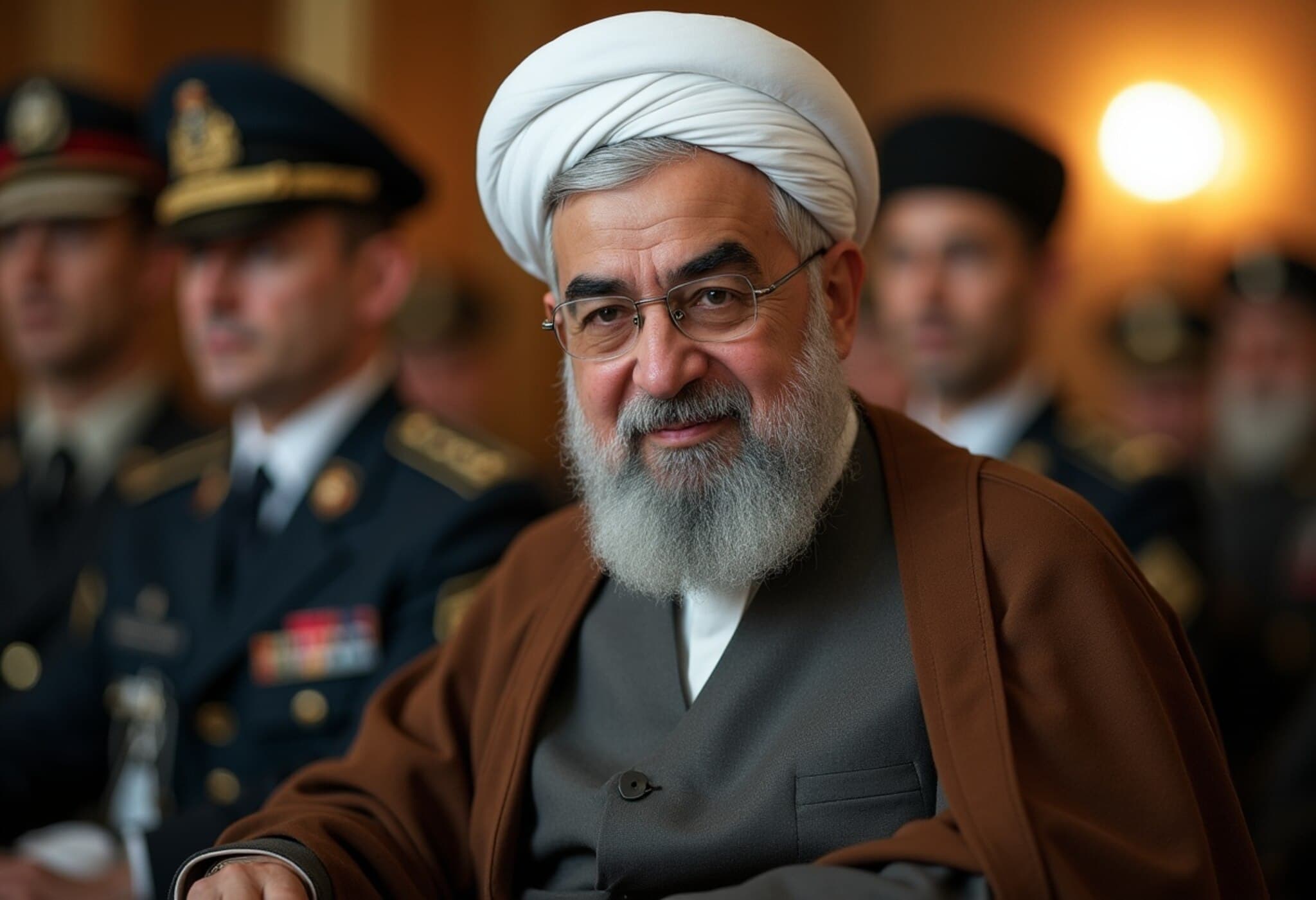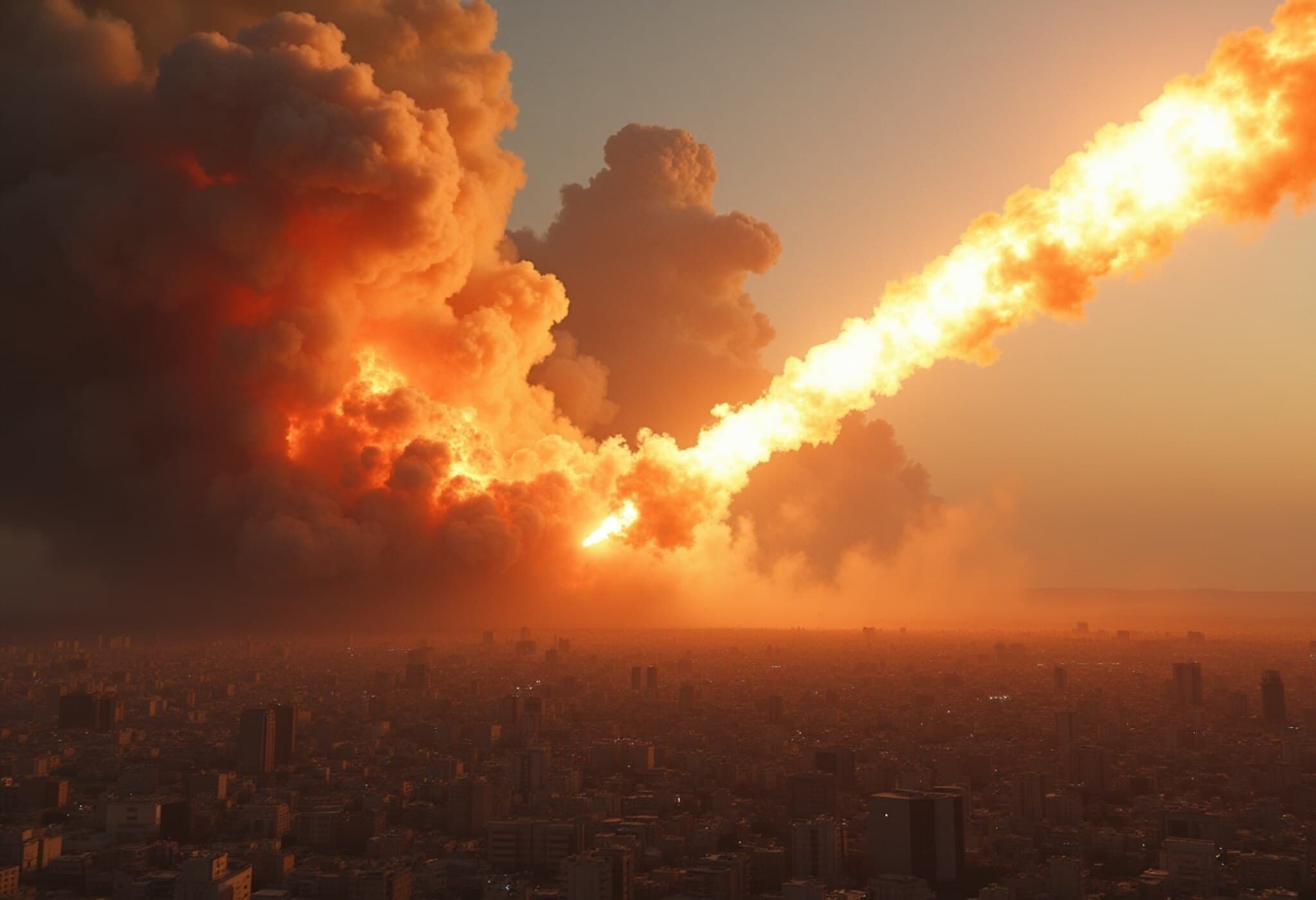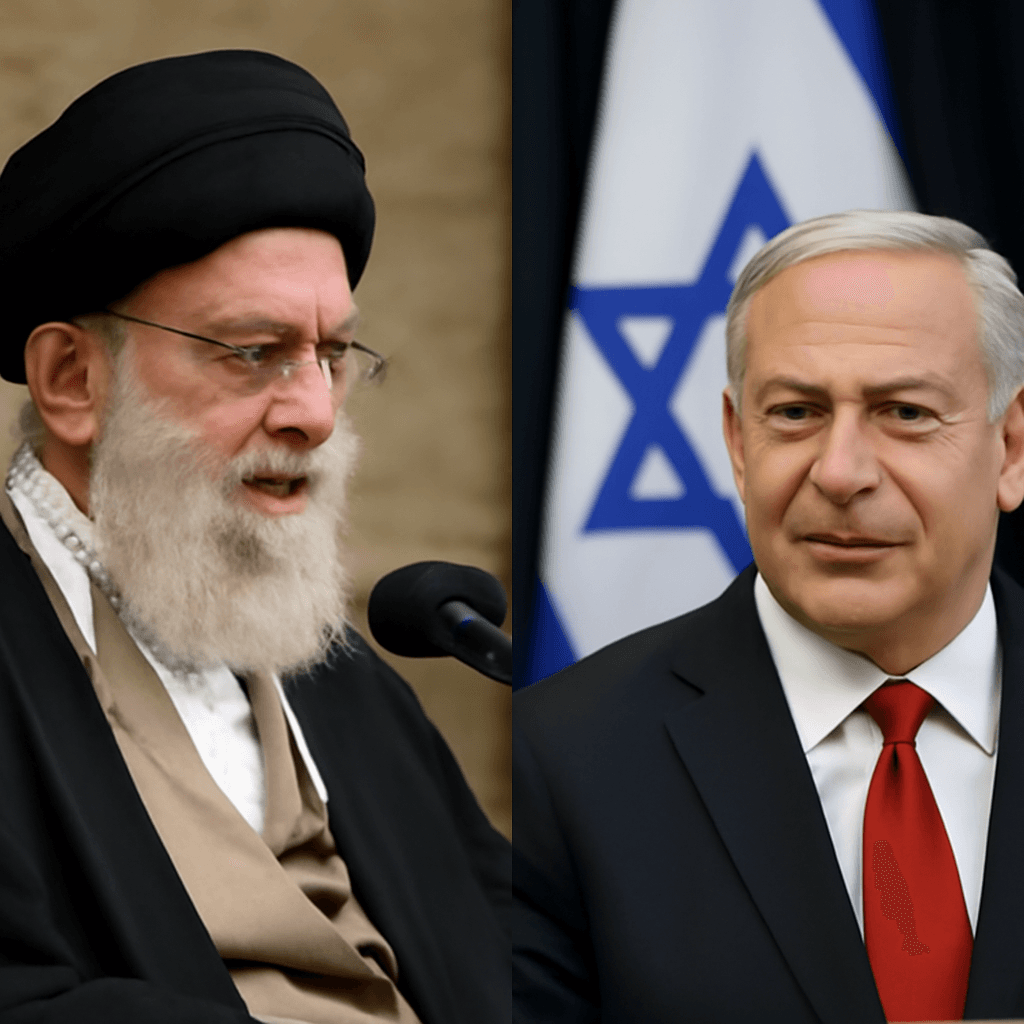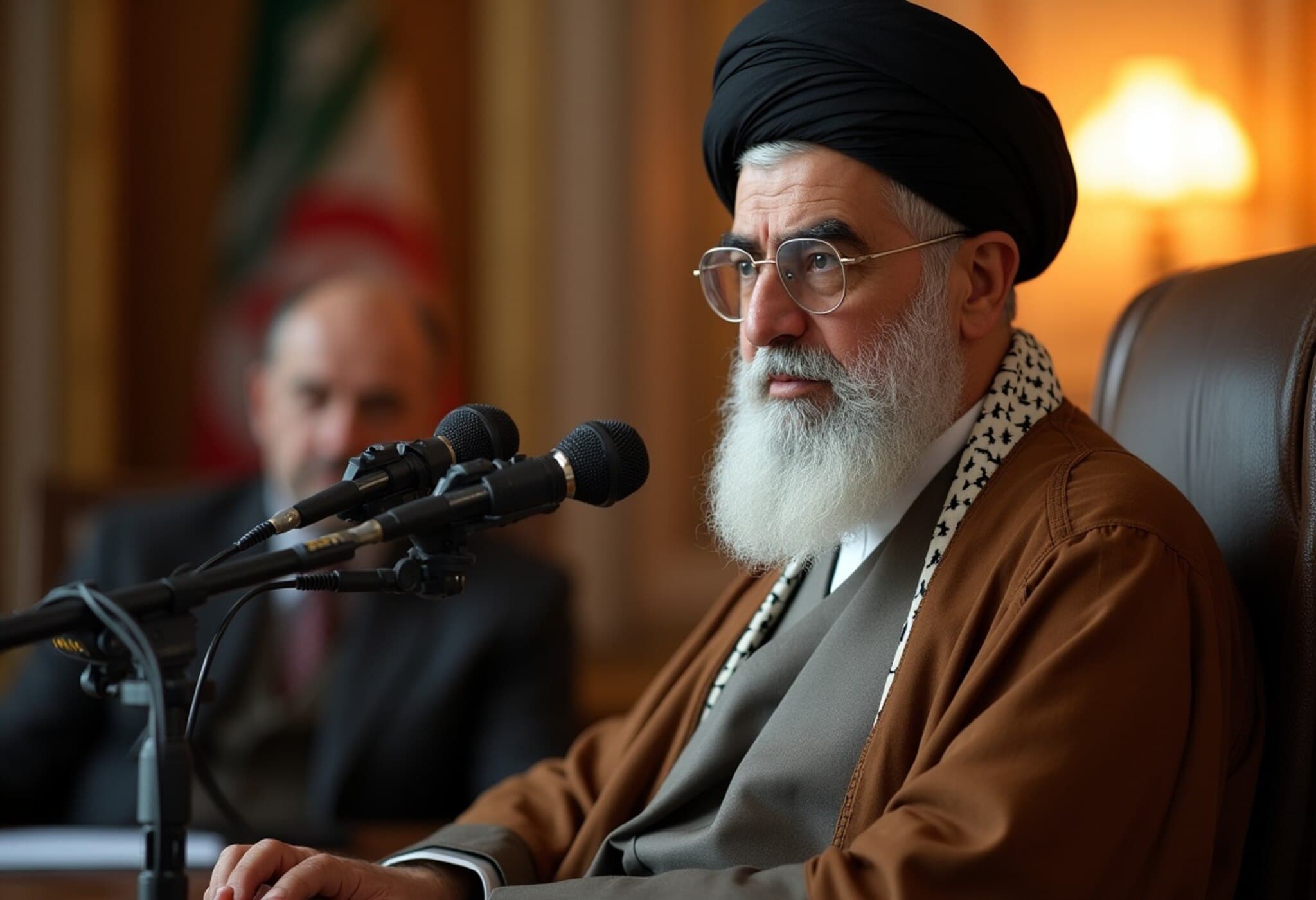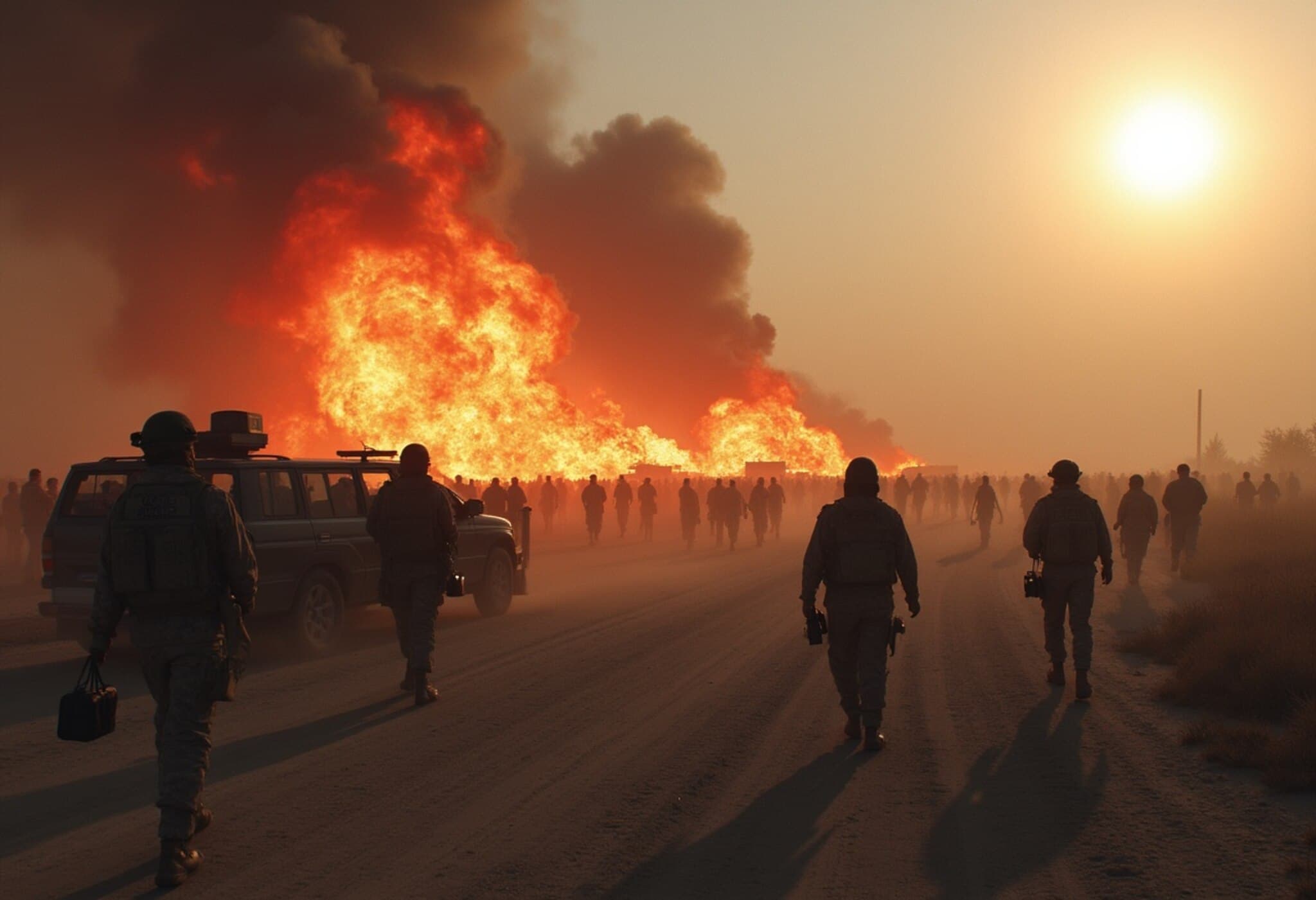Iran Launches Massive Drone Attack in Retaliation to Israeli Air Strikes
In a dramatic escalation, Iran launched approximately 100 drones toward Israeli territory following deadly Israeli air strikes that targeted numerous Iranian military and nuclear sites. Israel’s military confirmed the drone assault and emphasized efforts to intercept the incoming unmanned aerial vehicles.
Brigadier General Effie Defrin, an Israeli military spokesperson, revealed that Israel had struck back with nearly 200 fighter jets hitting around 100 targets across Iran earlier in the day, signaling a sharp surge in hostilities between the two regional rivals.
Khamenei Issues Dire Warning Over Israeli Attacks
Supreme Leader Ayatollah Ali Khamenei condemned the strikes and warned that Israel would face "severe punishment" for its actions, particularly after the loss of prominent Iranian military figures. The attacks reportedly killed Iran’s armed forces chief of staff, Mohammad Bagheri, and senior Revolutionary Guards commander Gholam Ali Rashid. Additionally, two leading nuclear scientists, Mohammad Mehdi Tehranchi and Fereydoun Abbasi, were reportedly targeted and killed.
Describing Israel as a "terrorist regime," Khamenei declared that the assaults had crossed a red line and predicted a bitter retaliation. He condemned Israel’s strikes on civilian areas, framing them as proof of the country’s malicious intent.
Tehran Asserts Its Right to Defend and Respond
Iran’s Foreign Ministry emphasized its "legal and legitimate right" to respond to what it called Israeli aggression. Citing Article 51 of the United Nations Charter, it justified retaliatory measures as necessary self-defense.
The armed forces vowed unwavering defense of the nation. General staff spokesman Abolfazl Shekarchi announced that Israel would "pay a heavy price" and should brace for a fierce Iranian response.
The Islamic Revolutionary Guard Corps echoed this sentiment, promising harsh retribution following the death of its chief, Hossein Salami. The organization declared the attacks would not go unanswered and called for severe consequences for Israel.
Blaming the U.S. for Coordinating Israeli Actions
Tehran held the United States responsible for the repercussions of the escalating conflict, arguing that Israel's operations could not have proceeded without American consent. The Foreign Ministry asserted that Washington bears accountability for the dangerous fallout of these developments.
Iran Justifies Its Nuclear and Missile Ambitions
In the wake of the strikes, Iran doubled down on its commitment to uranium enrichment and missile program advancements. Official statements stressed that dialogue with Israel is futile except through strong military deterrence, reinforcing Tehran’s insistence on sovereign rights to nuclear technology and defense capabilities.
Regional and Global Implications of the Clashes
The hostilities have sent shock waves throughout the oil-rich Gulf region, causing oil prices to spike more than 12% amid fears of a wider conflict. This tension unfolds against the backdrop of a 2023 reconciliation facilitated by China between Saudi Arabia and Iran, aimed at easing longstanding regional rivalries.
Past tensions date back to 2016, when Riyadh severed diplomatic ties after attacks on its missions in Iran following the execution of a Shiite cleric. Increasing instability now threatens this fragile détente.
Israel’s Justification for Preemptive Strikes
Israel justified its offensive by citing intelligence that Iran is nearing the "point of no return" in developing nuclear weapons. The military warned that Iran's production of enriched uranium, combined with fortified underground facilities, could enable it to achieve a nuclear arsenal in a short timeframe.
Outlook
As both sides escalate their military actions and rhetoric, the risk of broader confrontation looms large. The international community watches closely as the regional balance teeters and diplomatic channels face mounting pressure.

